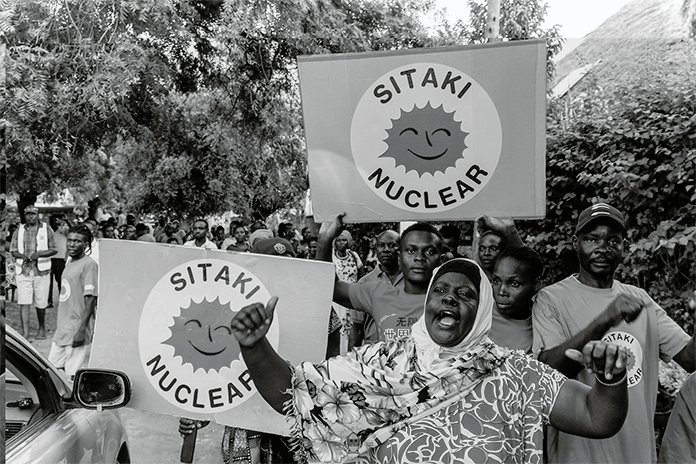Kenya’s ambitious plan to construct its first nuclear power plant is now facing significant resistance. The proposed Kenya nuclear project, set to be established in Kilifi County, has sparked fierce opposition from local residents, environmental groups, and energy experts who argue that the country is not ready for nuclear energy — not economically, socially, or environmentally.
The project, spearheaded by the Nuclear Power and Energy Agency (NuPEA), aims to deliver a 1,000-megawatt nuclear power plant by 2034. According to NuPEA, the project is part of Kenya’s long-term energy strategy to meet growing electricity demand while reducing over-reliance on hydro and fossil fuels. But the dream of nuclear power is now clouded by concerns over land rights, public safety, environmental impact, and transparency.
At the heart of the resistance are the people of Kilifi, a coastal region known for its cultural heritage and fragile marine ecosystems. Community members argue that they have been sidelined from critical decision-making processes, saying they were never given a chance to fully understand the implications of theproject. “We are not against development, but it must be inclusive and safe. This is our home, not a testing ground.”
Kilifi residents, many of whom rely on fishing and small-scale farming, fear that the nuclear project could contaminate water sources, displace communities, and disrupt their livelihoods. Environmental groups have also sounded the alarm, arguing that Kenya should instead invest further in its abundant renewable energy potential — including solar, geothermal, and wind — rather than pursue high-risk nuclear energy.
Environmental consultants urgue that Kenya has the capacity to be a renewable energy leader in Africa but building a nuclear plant in a seismically sensitive area with limited infrastructure and emergency response mechanisms is extremely risky. “It’s not just an energy question — it’s an environmental and moral one.”
Though NuPEA has repeatedly assured the public that the nuclear project will adhere to international safety standards — including those of the International Atomic Energy Agency (IAEA) — skepticism remains high. A 2024 audit by Kenya’s Auditor-General revealed glaring gaps in project planning, funding accountability, and public sensitization. The audit raised red flags about possible financial mismanagement and lack of readiness for such a complex infrastructure project.
Opposition is growing even within political circles. Legislators from coastal counties have begun demanding a parliamentary review and fresh public hearings. “There must be transparency. The people have the right to know every detail,” said Hon. Zuleikha Hassan, MP for Kwale County. “Until we are sure this project won’t harm our communities, it must be stopped.”
But the government insists the nuclear initiative is a vital part of Kenya’s vision for energy security. During a press briefing earlier this month, NuPEA Director-General Justus Wabuyabo defended the plan, saying, “Kenya’s energy demand will triple by 2040. Nuclear energy offers a stable, low-carbon solution that complements our renewable mix and industrialization goals.”
Wabuyabo highlighted Kenya’s technical cooperation with countries like Russia, China, and South Korea, which includes training of local engineers and detailed feasibility studies. He dismissed the criticism as premature and politically motivated.
Still, energy experts are urging caution, cautioning Kenya against rushing into nuclear without first building the necessary regulatory infrastructure, workforce capacity, and public trust. “The consequences of getting it wrong are too high.”
Globally, developing countries are reassessing their nuclear ambitions. South Africa, currently the only African nation operating a nuclear power plant, has struggled with cost overruns and public resistance in expanding its nuclear program. Kenya’s critics argue that these international lessons should guide domestic decisions.
The nuclear power debate is shaping up to be a major political issue ahead of Kenya’s general election in 2027. Civil society groups are preparing legal actions to halt licensing and land acquisition as planned public protests are witnessed in Kilifi and Nairobi.
The Kenya nuclear project, once seen as a symbol of national progress, is now emerging as a political flashpoint. Whether the government proceeds or pauses for broader consultation may determine not just the fate of the project, but the future of public trust in the country’s energy policy.
The Nuclear Power and Energy Agency (NPEA) is conducting a national survey to assess the public’s awareness, perceptions, and preferred channels of engagement regarding nuclear energy.
This survey will support informed, inclusive decision-making and contribute to the development of targeted public awareness strategies.
Survey Link
Survey Period: June – August 2025
What’s Your Take?
Should Kenya embrace nuclear energy, or double down on solar, wind, and geothermal? Share your thoughts on social media using #KenyaNuclearDebate and tag @PumpsAfrica.
To stay informed on Africa’s energy future, subscribe to the Pumps Africa newsletter and never miss a development.
Share
